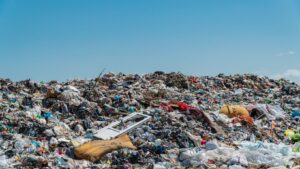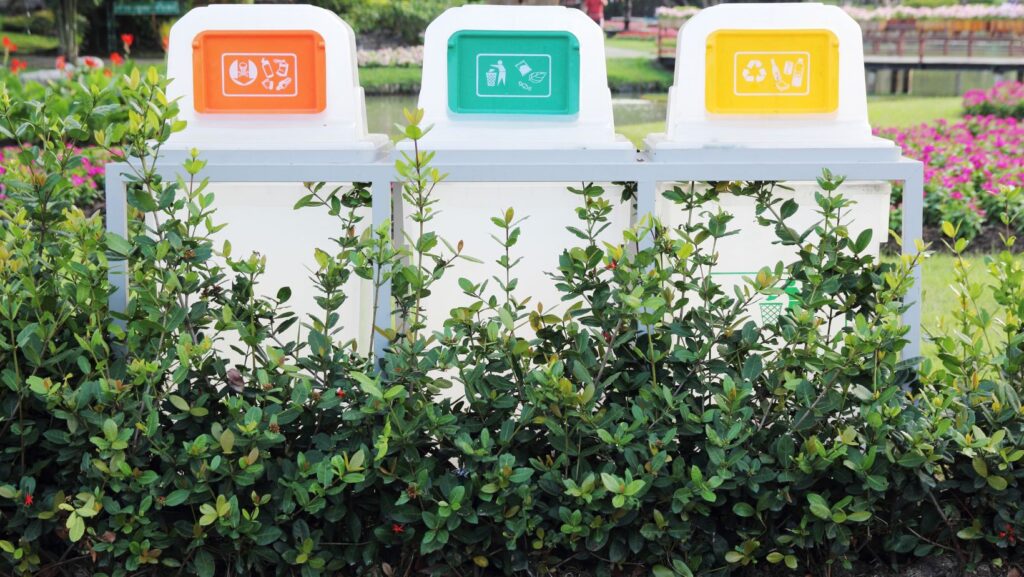10 Ways to Reduce Pollution in the Environment
 Pollution has become one of the most pressing issues of our time, affecting the air we breathe, the water we drink, and the land we live on. With the planet’s health in jeopardy, it’s crucial to take actionable steps to reduce our environmental footprint. Fortunately, there are practical ways individuals and communities can make a significant impact.
Pollution has become one of the most pressing issues of our time, affecting the air we breathe, the water we drink, and the land we live on. With the planet’s health in jeopardy, it’s crucial to take actionable steps to reduce our environmental footprint. Fortunately, there are practical ways individuals and communities can make a significant impact.
From adopting sustainable practices to supporting eco-friendly initiatives, everyone has a role to play in combating pollution. This article explores ten effective strategies to help reduce pollution and create a cleaner, healthier environment for future generations.
Adopt Renewable Energy Sources
Utilizing renewable energy sources significantly decreases pollution. Solar, wind, and hydroelectric power produce no emissions during operation. Solar panels, for example, convert sunlight directly into electricity without burning fossil fuels. Wind turbines harness kinetic energy from the wind, and hydroelectric dams use flowing water. These methods replace traditional energy sources like coal and naturalgas, which emit carbon dioxide and other pollutants.

Implementing renewable energy at home and in communities helps reduce dependence on non-renewable resources. Installing rooftop solar panels or subscribing to a community solar program can offset household electricity costs and lower carbon footprints. Additionally, wind farms and hydroelectric plants can supply large-scale energy needs for towns and cities, decreasing reliance on fossil fuels.
Government incentives make adopting renewable energy more feasible. Many regions offer tax credits, rebates, and grants for installing solar panels or other renewable energy systems. Programs like the Investment Tax Credit (ITC) in the US provide significant savings, promoting broader adoption and further reducing environmental impact. By transitioning to renewable energy, communities can protect the environment and contribute to a sustainable future.
Improve Public Transportation Systems
Improving public transportation systems reduces pollution by cutting down individual car emissions and promoting eco-friendly travel options. Effective systems encourage wider usage and contribute to cleaner urban air quality.
Promote Electric Vehicles
Cities can integrate electric vehicles (EVs) into public transport fleets to decrease reliance on fossil fuels. EV buses and shuttles produce zero tailpipe emissions, significantly reducing air pollution in urban areas. Installing charging infrastructure supports this transition, making EVs a viable option for daily commuting.
Enhance Cycling Infrastructure
Developing cycling infrastructure offers a sustainable alternative to traditional transport. Constructing dedicated bike lanes, providing secure parking, and implementing bike-sharing programs promote cycling as a convenient mode of transportation. These measures decrease vehicle congestion and emissions, improving urban livability and air quality.
Implement Waste Management Practices
Implementing efficient waste management practices combats pollution by minimizing waste’s impact on the environment. Effective methods address the problem’s root and encourage sustainable practices.
Reduce, Reuse, Recycle
The “Reduce, Reuse, Recycle” approach mitigates waste accumulation. Reduction focuses on decreasing the overall amount of waste generated by opting for products with minimal packaging. Reuse involves finding new purposes for items instead of discarding them, like repurposing glass jars as storage containers. Recycling transforms waste materials into new products, which conserves resources and reduces landfill expansion. Communities supporting recycling programs see significant reductions in waste volumes and energy consumption.
Compost Organic Waste
 Composting organic waste decreases landfill waste and enriches soil quality. Organic scraps like food leftovers and yard clippings break down naturally, turning into nutrient-rich compost. Composting minimizes methane emissions—a potent greenhouse gas—produced by decomposing organic waste in landfills. Households using composting systems decrease their waste output while providing valuable fertilizer for gardens and landscapes, promoting a sustainable nutrient cycle.
Composting organic waste decreases landfill waste and enriches soil quality. Organic scraps like food leftovers and yard clippings break down naturally, turning into nutrient-rich compost. Composting minimizes methane emissions—a potent greenhouse gas—produced by decomposing organic waste in landfills. Households using composting systems decrease their waste output while providing valuable fertilizer for gardens and landscapes, promoting a sustainable nutrient cycle.
Promote Sustainable Agriculture
Transitioning to sustainable agriculture methods reduces pollution significantly. Industrial farming methods contribute to soil degradation, water contamination, and greenhouse gas emissions. Sustainable practices, on the other hand, improve soil health, conserve water, and reduce reliance on chemical inputs.
Use Organic Farming Techniques
Organic farming avoids synthetic pesticides and fertilizers. This reduces chemical runoff into water bodies, improving water quality. Additionally, using organic and natural animal feed in farming ensures that animals are raised on a diet free from synthetic additives, contributing to healthier ecosystems. Organic techniques also enhance soil fertility and promote biodiversity. Numerous studies by Rodale Institute show organic farms sequester more carbon compared to conventional farms.
Implement Crop Rotation and Diversity
Crop rotation helps maintain soil quality by alternating plant types. This reduces pest and disease cycles without relying on chemical interventions. Diverse crops improve ecosystem resilience and soil health by preventing monoculture problems.



